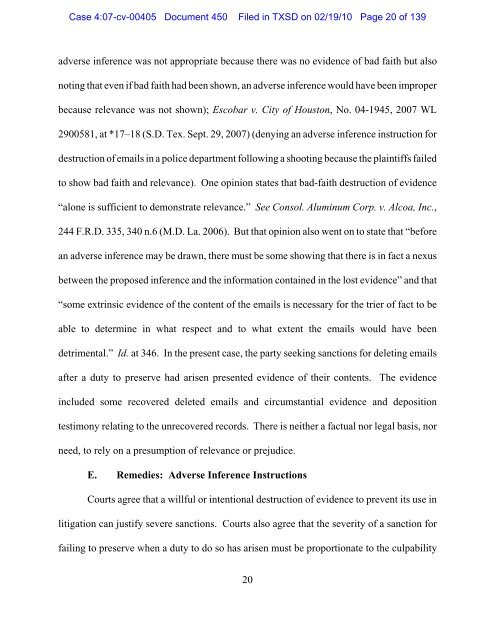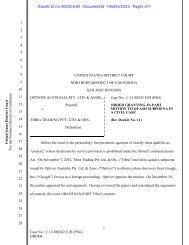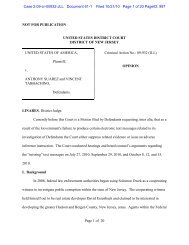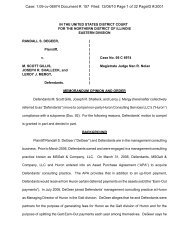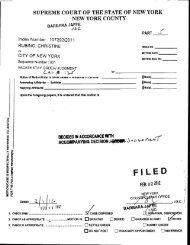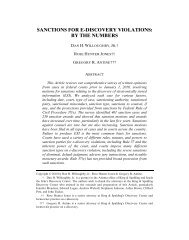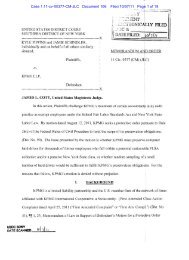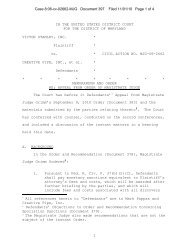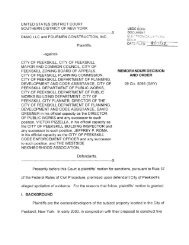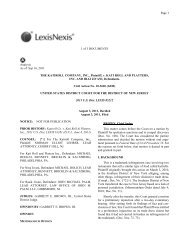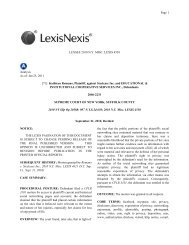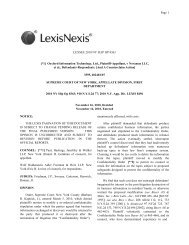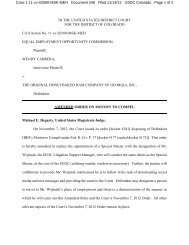Rimkus Consulting Group Inc. v. Cammarata - Ballard Spahr LLP
Rimkus Consulting Group Inc. v. Cammarata - Ballard Spahr LLP
Rimkus Consulting Group Inc. v. Cammarata - Ballard Spahr LLP
You also want an ePaper? Increase the reach of your titles
YUMPU automatically turns print PDFs into web optimized ePapers that Google loves.
Case 4:07-cv-00405 Document 450 Filed in TXSD on 02/19/10 Page 20 of 139<br />
adverse inference was not appropriate because there was no evidence of bad faith but also<br />
noting that even if bad faith had been shown, an adverse inference would have been improper<br />
because relevance was not shown); Escobar v. City of Houston, No. 04-1945, 2007 WL<br />
2900581, at *17–18 (S.D. Tex. Sept. 29, 2007) (denying an adverse inference instruction for<br />
destruction of emails in a police department following a shooting because the plaintiffs failed<br />
to show bad faith and relevance). One opinion states that bad-faith destruction of evidence<br />
“alone is sufficient to demonstrate relevance.” See Consol. Aluminum Corp. v. Alcoa, <strong>Inc</strong>.,<br />
244 F.R.D. 335, 340 n.6 (M.D. La. 2006). But that opinion also went on to state that “before<br />
an adverse inference may be drawn, there must be some showing that there is in fact a nexus<br />
between the proposed inference and the information contained in the lost evidence” and that<br />
“some extrinsic evidence of the content of the emails is necessary for the trier of fact to be<br />
able to determine in what respect and to what extent the emails would have been<br />
detrimental.” Id. at 346. In the present case, the party seeking sanctions for deleting emails<br />
after a duty to preserve had arisen presented evidence of their contents. The evidence<br />
included some recovered deleted emails and circumstantial evidence and deposition<br />
testimony relating to the unrecovered records. There is neither a factual nor legal basis, nor<br />
need, to rely on a presumption of relevance or prejudice.<br />
E. Remedies: Adverse Inference Instructions<br />
Courts agree that a willful or intentional destruction of evidence to prevent its use in<br />
litigation can justify severe sanctions. Courts also agree that the severity of a sanction for<br />
failing to preserve when a duty to do so has arisen must be proportionate to the culpability<br />
20


